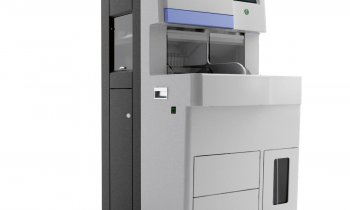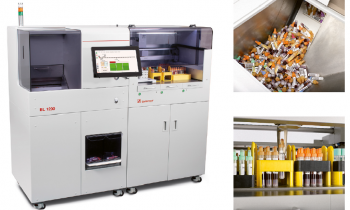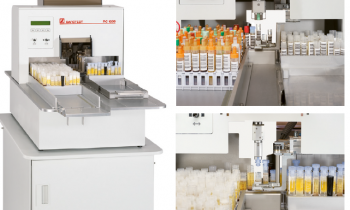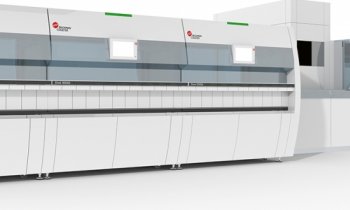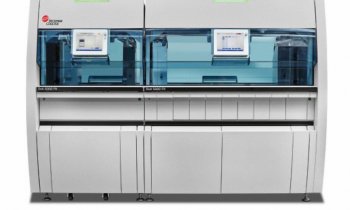The 12th American Association for Clinical Chemistry meeting
This year's AACC, held in conjunction with the Canadian Society for Clinical Chemists, and the Annual Meeting of the American Society for Clinical Laboratory Science, featured around 200 educational sessions and drew in over 18,000 delegates and exhibitors from almost 100 countries.
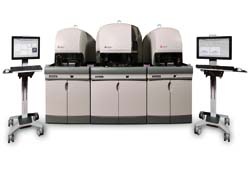
And, yet again, the Clinical Lab Expo again proved to be the biggest event of its kind worldwide, with 663 companies exhibiting in 1,793 booths.
Molecular diagnostics and point-of-care showed continued growth. Companies are betting on automation and integrated work cell type instruments to help even small labs run more efficiently.
Beckman Coulter, Inc. showed three new chemistry/immunoassay integrated work cells, the UniCel DxC 660i, the UniCel DxC 680i and the UniCel 860i Synchron Access Clinical Systems. The company has dubbed the series of five work cells UniCel i class. Each of the integrated systems is configured to meet a different level of throughput and features Beckman Coulter’s unique ClozCap technology – automated closed-tube aliquoting and sampling, which frees technologists from the labour-intensive task of de-capping, re-capping and sorting samples manually.
Siemens Healthcare introduced three new clinical laboratory automation solutions: the capability for the ADVIA Centaur XP Immunoassay System to connect to the VersaCell System, allowing clinical laboratories to maximise the number of tests run on one workcell. With the VersaCell system, laboratories with higher test volumes can now access one of the broadest menus of routine and specialty immunoassays by connecting the ADVIA Centaur XP Immunoassay System to the IMMULITE Immunoassay Systems. Additionally, mid-to-high volume laboratories can now connect the ADVIA Centaur XP Immunoassay System to the ADVIA 1800 Chemistry System, gaining efficiency through access to a broader menu of immunochemistry and chemistry tests.
Laboratorians may see IT introducing different laboratory components that draw hospital departments closer together. The ability to link lab results with those from other hospital departments, such as imaging or point-of-care, will be critical for physicians to provide the most accurate diagnosis and recommended treatment for patients.
Miniaturisation, micro-fluidic, and biosensor-based products, such as the Abbott iStat point-of-care device, are at the frontier of technical innovations. Test menus are expanding, particularly in oncology, infectious disease and selected genetic disease testing, such as pre- and post-natal testing, cardiac markers and cancer risk factors. Personalised medicine is still at the embryonic stage but there are already many more tests that are useful in helping to select therapies and preventing unnecessary procedures. It promises to become a major value in a number of years.
The 13th AACC
25-29 July 2010
Venue: Anaheim, California
01.09.2009







